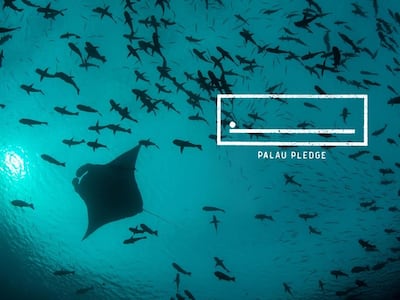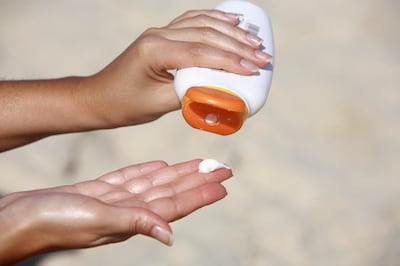Travellers to the island nation of Palau can no longer bring environmentally-harmful sunscreens into the Pacific Nation.
Situated approximately halfway between Australia and Japan, Palau has banned any sunscreens containing chemicals that it deems dangerous to its natural environment.
Effective from January 1, 2020, the new law also bans the sale and use of any sunscreens containing known environmental pollutants across the country.
Which sunscreens are banned?
Not all sunscreens are toxic to marine life. The biggest culprits are products that contain oxybenzone or octinoxate.
According to the International Coral Reef Foundation, "Oxybenzone can cause corals to become more susceptible to bleaching, it can damage the DNA of coral, and can deform and kill juvenile coral. Oxybenzone has been documented to turn adult male fish into female fish and cause developmental defects, it is also toxic to shrimp, sea urchins, and bivalves (scallops, mussels), and is especially toxic to marine algae."
"We hope that more nations will follow in their footsteps in making strong steps to protect their reefs," a spokesperson from the International Coral Reef Foundation told The National.
What makes sunscreens toxic?
Several ingredients or chemicals used in various brands of sunscreen can be harmful to marine life, according to the International Coral Reef Foundation. Travellers should check ingredient lists carefully before purchasing sunscreen products.
Harmful ingredients to avoid include:
o Oxybenzone (benzophenone-3)
o Ethylparaben
o Octinoxate (octyl methoxycinnamate)
o Butylparaben
o Octocrylene
o 4-methyl-benzylidene camphor
o Benzyl paraben
o Triclosan
o Methylparaben
o Phenoxyethanol
What can I used instead?
Not all sunscreens are banned from Palau and "there are a number of brands which offer reef-safe sunscreens" says the International Coral Reef Foundation.
These include products from Badger, Raw Elements, Thinksport, Loving Naturals and Steam2Sea as well as several other brands.
"Tourists can also make better use of protective sun gear, such as broad-brimmed hats and long-sleeved clothing," says a spokesperson from the foundation.
Championing sustainability

Palau has long been a champion for environmental rights.
In 2017, it became the first country in the world to change its immigration laws for the betterment of its natural resources when it introduced the Palau Pledge.
This pledge is now stamped into every traveller's passport before they enter the country. Visitors must then sign the pledge which affirms they will tread lightly, act kindly and explore mindfully during their time on the islands.
A new marine sanctuary was established in Palau on January 1, 2019. This closes 80 per cent of the ocean surrounding the island to fishing.
Hawaii to ban sunscreen
Palau is the first country to ban reef-toxic sunscreen, but it will soon be followed by Hawaii. Lawmakers there have already signed a bill that will prevent harmful sunscreens being sold across the island nation from January 1, 2021.
A study by the International Coral Reef Foundation in partnership with Sweden's Ministry of Environment and Energy and the Foundation for Research on Biodiversity found reef-toxic ingredients in all seven of the coastal areas examined during the study. These included Gran Canaria, Hong Kong, the US Virgin Islands and Majorca.



